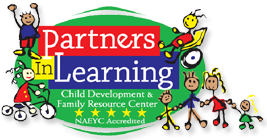Thursday, July 30, 2015
Helping children deal with death
At some point in time we all lose a loved one. It could be a family member or even a pet. My youngest son was there when his Auntie was taken away in an ambulance. I remember having to tell him that she was dead. At the funeral he wanted to see her, he said goodbye. He wanted to visit her grave and everytime he asked we did. He would just sit and talk to her and tell her that he missed her. I think that he handled it much better than I did. As adults we may struggle with grief and dealing with that loss. But what about our children? What can we do to help them to get through the grieving process with us?
Children will react to the emotions displayed by the adults around them. They may not fully comprehend what has happened but will react to strong emotions displayed by us. We should always gear the discussion based on their developmental level. They may respond by not showing any emotions at all or regressing to more childlike behaviors such as wanting to be held, rocked, sleeping with their parents, having anxiety when their parents leave them. When children continue to ask the same questions over and over, they are trying to grasp an understanding of the situation, it may be something that they don't fully understand. They may act out physically or emotionally.
We should never assume as teachers that all children understand death and loss at the same level. We should always tell them the truth. They will be able to tell the difference in our behavior. We should keep it simple, answer questions as honestly as we can. We need to remember to that grieving is a process for us as well as children. They may have delayed reactions, something simple may happen that will set off a memory and they may act out. Be patient, ask them what's wrong, understand that they are dealing with the loss in their own way. Help them to understand. We need to be reassuring with them.
Children will react differently at different stages of development. As parents we can look up resources online, check out books or buy books that deal with loss and death that are appropriate for their age levels. Most importantly we need to be patient, with ourselves and our children. We need to realize that loss and death are a part of life, and that each one of us deals with it in their own way. Help your children to cope with grief. Look for grief counseling groups if it is too much for you to bear alone, find support from family and friends for both yourself and your children. Allow yourself to grieve and allow your child to do the same.
For my son, the loss was great, there are things that he used to do with her that he wouldn't do for a very long time. Even now he still will talk about her. He has helped me deal with the death of a very close loved one.
Something else that has helped me very much is grief share. http://griefshare.org
Subscribe to:
Post Comments (Atom)


No comments:
Post a Comment